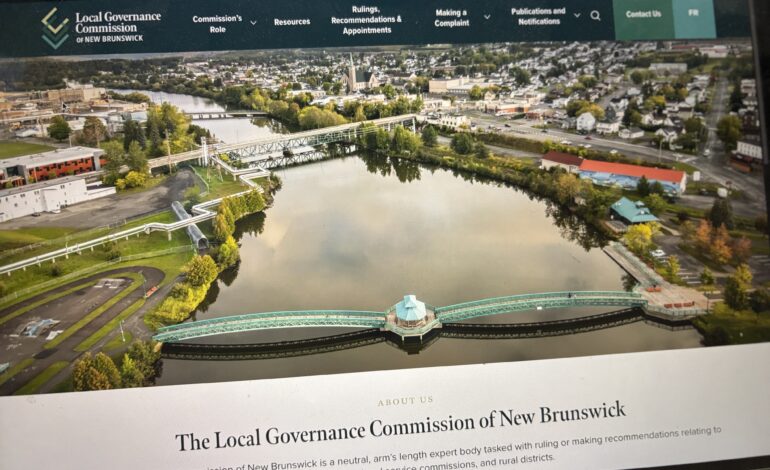
The Local Governance Commission in New Brunswick is recommending the provincial government implement mandatory training for municipal leaders and senior staff.
In its first report since being created in the spring of last year, it said this recommendation addressed many of the challenges facing local governments since reform.
“These recommendations are grounded in the experiences of local government councillors and senior employees who have shared their concerns with us,” said Giselle Goguen, the chair of the commission.
The training would address several key areas:
- Code of conduct: including sections on harassment and bullying.
- Conflicts of Interest.
- Roles and responsibilities of elected officials and staff.
- Financial requirements and matters.
- Right to Information and Protection of Privacy Act requirements.
It says the training should happen within the first six months of an election or appointment and failure to complete the training should come with the appropriate sanctions.
“Specifically, confusion over governance principles and legal obligations is leading to avoidable conflict, expense, and stress. Mandatory training in the key areas identified by the Commission is a straightforward and efficient way the Department can help support local governments, especially newly-amalgamated communities,” Goguen said in the release.
Dan Murphy, the executive director of the Union of Municipalities of New Brunswick, said this recommendation aligns well with the work the organization is already undertaking.
“It evolves over time,” he said. “What are the foundation blocks of local government … making sure there is a clear understanding of how we handle and work on code of conduct complaints and conflicts of interest, just general financial stuff, things around asset management and how do you make responsible decisions around maintaining and replacing infrastructure in your community.”
He said this is important as the province heads into a municipal election in May 2026.
“There are a lot of factors at play, but like any other position, education is always a benefit to what you’re doing and helps make your job better,” he said in an interview with The Courier.
Murphy explained the organization is happy to work with the department, but also municipal stakeholders on the delivery of this training.
For local leaders like Allan MacEachern, the training is welcome news.
Former Coun. Earle Eastman, who died this summer, and Chief Administrative Officer Jeff Renaud were working on an orientation package for the incoming council in 2026.
“I’m glad to see they’re looking into doing that or planning to do that,” he said. “Councillors still need to understand their role and it is good for that.”
MacEachern said there is a lot to learn and that takes time.
“I walked in and you’re ready to change the world but there are so many things you have to learn in a short period of time,” he said. “You can lean on a senior councillor that has been around.”
He explained the UMNB also does some training already.
“Understanding your role … understand [the] process, what you can and cannot do,” he said.
Eastern Charlotte Mayor John Craig has been a part of local government for nearly two decades.
“I think it is something that everybody welcomes, to have more training, more education, the more the better,” he said. “I’ve been involved with the municipal government for … 19 years and I’m still learning. I could be at it for another 20 years and still be learning.”
He said the biggest thing that comes to mind for him is learning procedures – especially procedural bylaws.
“Everybody has a different role to do and a different job to do and sometimes those lines get mixed over time,” he said. “So, I think it’s good training to have … and it’s easy to do because everybody has their passion for [doing] the job.”
The commission also made several other recommendations as part of its first report, which were given to Local Government Minister Aaron Kennedy:
- Allowing the Commission to order training as a sanction in cases involving breaches of conflict-of-interest provisions or code of conduct by-laws;
- Introducing Regulatory changes to prohibit reprisals against complainants;
- Expanding the Commission’s authority when reviewing regional service commission boundary alteration requests to ensure larger impacts of such requests are always considered; and
- Requiring an independent 7-year mandatory review of the Local Governance Commission Act.




